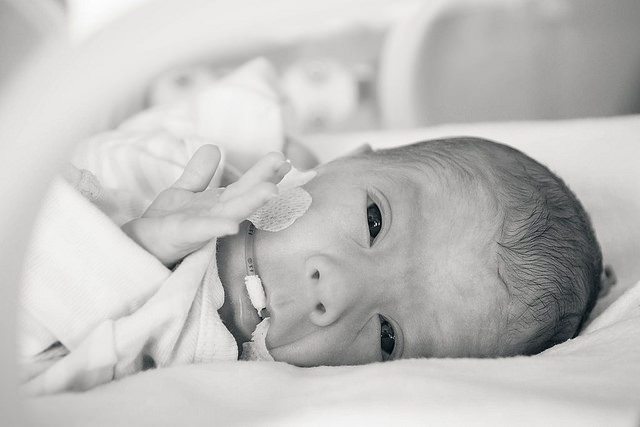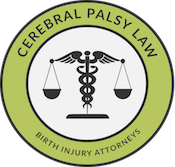What Is Group B Streptococcus (GBS)?
Group B Streptococcus, also known as Group B Strep or GBS, is a bacterium found in the intestines or lower genital tract of roughly 20%-40% of all healthy adult women. While the GBS bacterium is generally harmless in the mother, it can cause severe illness, injury, or death in newborns who have not yet developed the antibodies necessary to fight the infection. Group B Strep can transmit from the mother to the fetus and cause fetal brain damage, cerebral palsy (CP), meningitis, sepsis, pneumonia, hearing loss, and/or blindness.
Our skilled attorneys have been assisting children affected by GBS infection-related birth injuries and cerebral palsy for decades. Whether your child’s permanent injury or disability resulted from Group B Streptococcus or from another complication, our attorneys can help. Our birth injury attorneys, who are available to speak 24/7, will provide you with a free legal consultation and determine if you have grounds for a medical malpractice or personal injury claim. Contact Michigan Cerebral Palsy Attorneys in any of the following ways:
Phone: Call our office toll-free at (888) 592-1857
Online: Fill out our online contact form here
Live Chat: Click the Live Chat tab to the left to speak with an attorney now
What Causes Group B Strep Infection?
Group B Streptococcus bacterium occurs naturally in women’s intestines and genital tracts. In a healthy woman’s body, GBS may be present for short periods of time, recur, or exist permanently. The infection can transmit to a fetus through direct contact with the uterus, but newborns more commonly contract it during delivery from contact with bacteria in the birth canal.
What Are the Signs and Symptoms of GBS Infection?
Most carriers of Group B Streptococcus show no physical signs or symptoms, so oftentimes they don’t know they have it. For this reason, the presence of GBS is very dangerous, and physicians are obligated to run diagnostic tests, usually in the third trimester. Signs and symptoms associated with untreated GBS include:
- Urinary tract infection (UTI): The GBS bacterium can lead to urinary tract infections in mothers, so the presence of a UTI can signify the bacterium.
- Premature rupture of the membranes (PROM), which occurs when the chorion and amniotic sac rupture before 37 gestational weeks or 18 hours before labor.
- Fever during labor
- Gastrointestinal and kidney issues
- Maternal sepsis, pneumonia, and meningitis
- Breathing, heart, and blood pressure irregularities
What Are the Risk Factors for Group B Streptococcus Infection?
 When the risk factors for GBS infection are present, it is crucial that the doctor closely monitor the mother and baby. Risk factors for Group B Strep include:
When the risk factors for GBS infection are present, it is crucial that the doctor closely monitor the mother and baby. Risk factors for Group B Strep include:
- Previous delivery of baby with the GBS infection, which signifies the presence of the bacteria in a mother’s body, thus increasing her chance of another Group B Strep delivery.
- Premature rupture of the membranes (PROM): The amniotic fluid is what protects a fetus from Group B Streptococcus bacteria and prevents the spreading of infection. When a mother’s water breaks, the baby loses this buffer and comes in contact with the infection.
How Is Group B Strep Diagnosed and Treated?
Medical professionals are obligated to conduct a GBS screening during a mother’s third trimester (with the best results occurring five weeks before delivery, so roughly between the 35th and 37th week of pregnancy).
If the patient tests positive as a carrier of Group B Streptococcus, doctors must prescribe antibiotic treatments during labor to protect the baby. If the woman has already delivered the baby and doctors suspect the presence of GBS infection, they must send a sample of the baby’s blood or spinal fluid to the lab for testing. For maximum protection against infection, physicians should administer antibiotics to the newborn even before receiving test results confirming presence of GBS.
 Legal Help for Cerebral Palsy and Group B Streptococcus
Legal Help for Cerebral Palsy and Group B Streptococcus
If GBS is not treated immediately, it can lead to conditions like cerebral palsy, seizures, meningitis, sepsis, blindness, mental and motor impairments, deafness, speech impediments, and even death. Failure to follow medical standards of treatment are considered negligence. If your child’s cerebral palsy or birth injury resulted from Group B Streptococcus infection, contact our Michigan cerebral palsy attorneys at (888) 592-1857 or fill out this online contact form. We understand the complex legal issues surrounding Group B Strep infection cases and will help you get the compensation and support you and your child deserve.
Sources:
- Edwards MS, Nizet V, Baker CJ. Group B Streptococcal Infections. In: Infectious Diseases of the Fetus and Newborn Infant, 7th ed, Remington JS, Klein JO, Wilson CB, et al (Eds), Elsevier Saunders, Philadelphia 2011. p.419.
- Eichenwald EC. Perinatally transmitted neonatal bacterial infections. Infect Dis Clin North Am 1997; 11:223.
- Verani JR, McGee L, Schrag SJ, Division of Bacterial Diseases, National Center for Immunization and Respiratory Diseases, Centers for Disease Control and Prevention (CDC). Prevention of perinatal group B streptococcal disease–revised guidelines from CDC, 2010. MMWR Recomm Rep 2010; 59:1.
- Phares CR, Lynfield R, Farley MM, et al. Epidemiology of invasive group B streptococcal disease in the United States, 1999-2005. JAMA 2008; 299:2056.
- Regan JA, Klebanoff MA, Nugent RP, et al. Colonization with group B streptococci in pregnancy and adverse outcome. VIP Study Group. Am J Obstet Gynecol 1996; 174:1354.
- Krohn MA, Hillier SL, Baker CJ. Maternal peripartum complications associated with vaginal group B streptococci colonization. J Infect Dis 1999; 179:1410.
- Zaleznik DF, Rench MA, Hillier S, et al. Invasive disease due to group B Streptococcus in pregnant women and neonates from diverse population groups. Clin Infect Dis 2000; 30:276.
- Schrag SJ, Zywicki S, Farley MM, et al. Group B streptococcal disease in the era of intrapartum antibiotic prophylaxis. N Engl J Med 2000; 342:15.
- Sheehy, Annabel, Deborah Davis, and Caroline SE Homer. “Assisting women to make informed choices about screening for Group B Streptococcus in pregnancy: A critical review of the evidence.” Women and Birth (2012)
